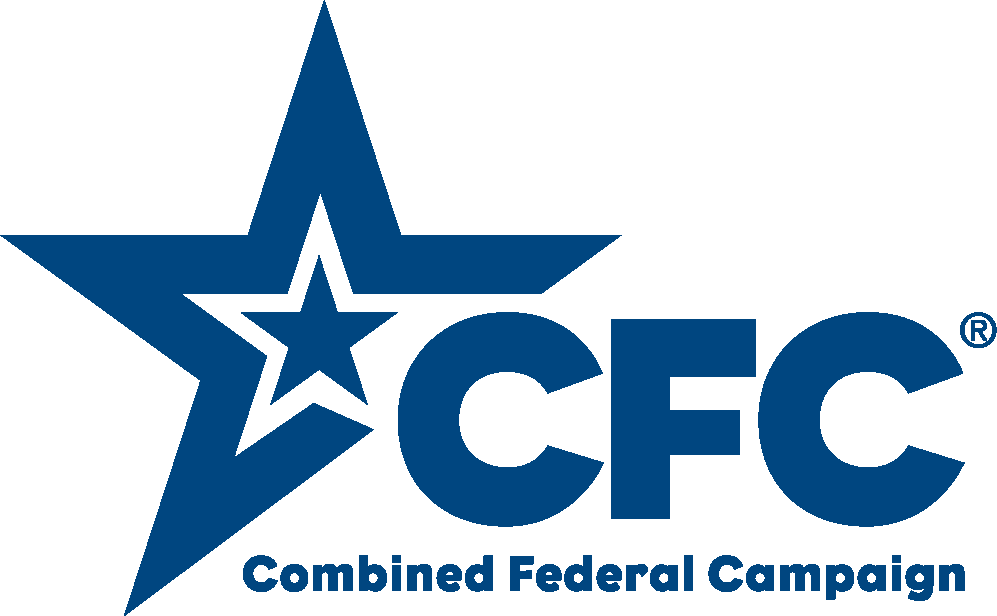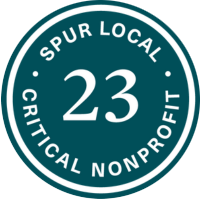Labor Seder & Social Justice Seder
Each spring from 2002 to 2019, the JUFJ community came together to retell the story of Passover and take action on local issues in our community. In 2020, our seders were canceled at the last minute due to the COVID-19 pandemic, but we are excited to resume them this year!
Seder registration will close at 9:00 AM on Friday, April 12.
Art by Michele Rosenthal
The 2024/5784 Social Justice Seder, “Let my people grow,” will explore the fight for youth justice in Maryland and the campaign to let all of Maryland’s children, and their children, and their children’s children break the chains of the criminal legal system and live in freedom. The Labor Seder, “Let all who are hungry come and eat,” will examine how the fight for liberation is reflected in DC street vendors’ campaign to be recognized as part of our city’s vibrant and diverse community.
Both seders will be held on Sunday, April 14, 2024 / 6 Nisan 5784. The Social Justice Seder will begin at 3:00 PM at Beth Am Synagogue in Baltimore (2501 Eutaw Pl), and the Labor Seder will begin at 5:00 PM at The Festival Center in DC (1640 Columbia Rd NW).
Read more details, reserve tickets, sponsor, and/or sign up to volunteer for either seder using the buttons below.
The 2024/5784 Social Justice Seder, “Let my people grow,” will explore the fight for youth justice in Maryland and the campaign to let all of Maryland’s children, and their children, and their children’s children break the chains of the criminal legal system and live in freedom. The Labor Seder, “Let all who are hungry come and eat,” will examine how the fight for liberation is reflected in DC street vendors’ campaign to be recognized as part of our city’s vibrant and diverse community.
Both seders will be held on Sunday, April 14, 2024 / 6 Nisan 5784. The Social Justice Seder will begin at 3:00 PM at Beth Am Synagogue in Baltimore (2501 Eutaw Pl), and the Labor Seder will begin at 5:00 PM at The Festival Center in DC (1640 Columbia Rd NW).
Read more details, reserve tickets, sponsor, and/or sign up to volunteer for either seder using the buttons below.
Each spring from 2002 to 2019, the JUFJ community came together to retell the story of Passover and take action on local issues in our community. In 2020, our seders were canceled at the last minute due to the COVID-19 pandemic, but we look forward to resuming them in 2024.
We have collected the Haggadah (ritual book) from almost all of these Labor Seders in DC (2005-2020) and Social Justice Seders in Baltimore (2014-2020) and made them available to download for your use at home in your own seders. Our 2020 Haggadahs are also available in online interactive form.
We hope these resources will enrich your holiday and help make critical change in our community. Chag Pesach sameach / Happy Passover!
If you are interested in helping to plan future seders, please contact our Program Director, Lindsay Morris (lindsay.morris@jufj.org).
Seder Resources
Haggadot are available to download for almost all of our seders. For the first three Labor Seders, JUFJ used a Haggadah from the Jewish Labor Committee, rather than creating our own. Thank you to Erica Allen and Rabbi Gerry Serotta for helping us complete this collection of Haggadot in 2023!
The 2020 Social Justice Seder, No Time To Care: A Plague on Our Communities, was canceled due to the COVID-19 pandemic. JUFJ staff created an online interactive Haggadah for use in people’s home seders, including downloadable supplements, and more. Since then, the Time To Care Coalition successfully pushed to pass a paid family and medical leave law for Maryland!

The 2019 Social Justice Seder, Common Resource, Common Need: A Seder on Water Justice, explored the fight for water justice in Baltimore and the sacred role of water in Jewish traditions.

The 2019 Labor Seder, In Every Generation, celebrated 50 years since the first Freedom Seder and 20 years of JUFJ.

The 2018 Labor Seder, Let My People Vote, was a collaboration with the Jews United for Justice Campaign Fund. We mobilized our community’s power and passion to re-tell the Exodus story and to elect bold, accountable leaders to office in DC and in Montgomery County.

At 2018’s 5th annual Social Justice Seder, “Shelter of Peace: A Seder on Migrant Justice,” we asked how immigration policy reflects our society’s values, what the Exodus can teach us about today’s migrants’ journeys, and how we, as a Baltimore Jewish community, will respond.

The 2017 DC Labor Seder, Out of Mitzrayim, Into the Streets, was a training session to help prepare us for resisting the Trump agenda by responding to public instances of hate and harassment; holding elected officials accountable; leveraging fiscal policy to advance racial and economic justice; and standing with immigrants and refugees.

At 2017’s 4th Annual Social Justice Seder, “Coming Through A Narrow Place: Seeking Police Accountability in Baltimore,” we delved into the complexities of policing and police accountability in Baltimore.

The 2016 DC Labor Seder focused on good jobs, and the policies we need to ensure that every hardworking person has access to one.

At 2016’s 3rd Annual Baltimore Social Justice Seder, “Let My People Go … Home!”, we learned about the terrible housing conditions that struggling Baltimore renters face, and the frequent injustices of Rent Court, the legal system which is meant to protect Baltimore City’s tenants.

The 2015 DC Labor Seder, None of Us is Free Until All of Us are Free, focused on racial injustice, in solidarity with the ongoing movement.

The 2015 2nd Annual Baltimore Social Justice Seder, Environmental Justice and the Curtis Bay Incinerator, focused on a toxic deal to build an incinerator in a low-income, already polluted Baltimore neighborhood.

The 2014 Labor Seder, It’s Time for the Dough to Rise, focused on the vast income inequality in the U.S. and the need to raise the minimum wage!

The 2014 1st Annual Baltimore Social Justice Seder focused on the criminal justice system.

The 2013 Labor Seder, Let My People Go Home Sick, addressed the crucial need for Paid Sick Days for all workers in our city and region. This seder highlighted the fact that no one should have to choose between their health and their job.

The 2012 Labor Seder, Immigrant Roots, Immigrant Rights, highlighted our region’s diverse immigrant communities and weaved the Passover freedom story with the struggles of local immigrants.

The 2011 Labor Seder, Everyone Deserves a Good Job, focused on unemployment in our region and the struggles of working families and low-income residents to find and keep good jobs.

The 2010 Labor Seder drew attention to the need for a strong, well funded social safety net, as city and state budgets are cut in ways that disproportionately affect working families and low-income residents.

The 2009 Labor Seder focused on the efforts of day laborers in D.C. to build a workers’ center and receive fair pay and working conditions.

The 2008 Labor Seder focused on the DC voting rights campaign, and how voting is a Jewish issue and a labor issue.

The 2007 Labor Seder focused on making our celebrations green and just in collaboration with the JUFJ Simcha Project.

The 2006 Labor Seder focused on economic justice and the challenges facing working people today.

The 2005 Labor Seder related the history of Jewish Americans in the Labor movement and how our Jewish values are represented in the struggle for workers’ rights.
The 2018 Labor Seder, Let My People Vote, was a collaboration with the Jews United for Justice Campaign Fund. We mobilized our community’s power and passion to re-tell the Exodus story and to elect bold, accountable leaders to office in DC and in Montgomery County.
Download the Haggadah as a PDF here.
Download the 2018 Labor Seder Maggid as a PDF here.
At 2018’s 5th annual Social Justice Seder, “Shelter of Peace: A Seder on Migrant Justice,” we asked how immigration policy reflects our society’s values, what the Exodus can teach us about today’s migrants’ journeys, and how we, as a Baltimore Jewish community, will respond.
Download the 2018/5778 Social Justice Haggadah as a PDF here.
Download the 2018/5778 Seder Plate as a PDF here.
The 2017 DC Labor Seder, Out of Mitzrayim, Into the Streets, was a training session to help prepare us for resisting the Trump agenda by responding to public instances of hate and harassment; holding elected officials accountable; leveraging fiscal policy to advance racial and economic justice; and standing with immigrants and refugees.
Download the Haggadah as a PDF here.
At 2017’s 4th Annual Social Justice Seder, “Coming Through A Narrow Place: Seeking Police Accountability in Baltimore,” we delved into the complexities of policing and police accountability in Baltimore.
The 2016 DC Labor Seder focused on good jobs, and the policies we need to ensure that every hardworking person has access to one. Download the Haggadah as a PDF here.
At 2016’s 3rd Annual Baltimore Social Justice Seder, “Let My People Go … Home!”, we learned about the terrible housing conditions that struggling Baltimore renters face, and the frequent injustices of Rent Court, the legal system which is meant to protect Baltimore City’s tenants.
The 2015 DC Labor Seder, None of Us is Free Until We are All Free, focused on racial injustice, in solidarity with the ongoing movement. Download the Haggadah as a PDF here.
The 2015 2nd Annual Baltimore Social Justice Seder, Environmental Justice and the Curtis Bay Incinerator, focused on a toxic deal to build an incinerator in a low-income, already polluted Baltimore neighborhood.
- Download the 2015/5775 Social Justice Haggadah here.
The 2014 Labor Seder, It’s Time for the Dough to Rise, focused on the vast income inequality in the U.S. and the need to raise the minimum wage! Download the Haggadah as a PDF here.
The 2013 Labor Seder, Let My People Go Home Sick, addressed the crucial need for Paid Sick Days for all workers in our city and region. This seder highlighted the fact that no one should have to choose between their health and their job. Download the Haggadah as a PDF here.
The 2012 Labor Seder, Immigrant Roots, Immigrant Rights, highlighted our region’s diverse immigrant communities and weaved the Passover freedom story with the struggles of local immigrants. Download the Haggadah as a PDF here.
The 2011 Labor Seder Everyone Deserves a Good Job focused on unemployment in our region and the struggles of working families and low-income residents to find and keep good jobs. Download the Haggadah as a PDF here.
The 2010 Labor Seder drew attention to the need for a strong, well funded social safety net, as city and state budgets are cut in ways that disproportionately affect working families and low-income residents. Download the Haggadah as a PDF here.
The 2009 Labor Seder focused on the efforts of day laborers in D.C. to build a workers’ center and receive fair pay and working conditions. Download the Haggadah as a PDF here.





